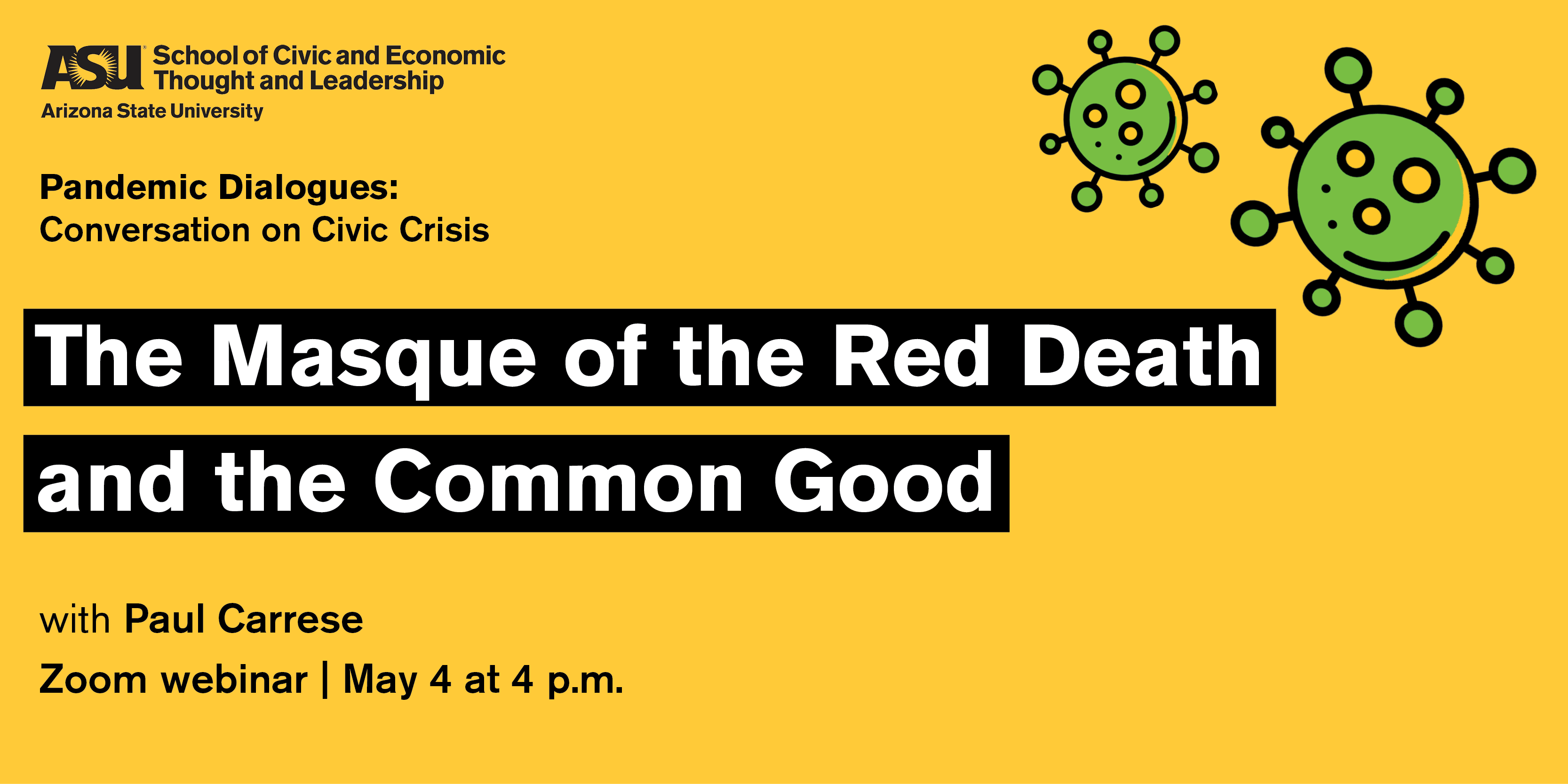The Masque of the Red Death and the Common Good Webinar

Pandemic Dialogues is a new virtual series providing perspective on the current civic crisis through conversations among the school’s faculty and students, academic guests and a wider community. Once the school’s regular speaker events had to be postponed, we sought to sustain the intellectual community we’ve built with students, ASU colleagues and the community.
Paul Carrese is the founding director of the School of Civic and Economic Thought and Leadership at Arizona State University. For nearly two decades he was a professor of political science at the United States Air Force Academy. He is author of "The Cloaking of Power: Montesquieu, Blackstone, and the Rise of Judicial Activism," and co-editor of three other books – on George Washington, constitutionalism, and American grand strategy. His most recent book is "Democracy in Moderation: Montesquieu, Tocqueville, and Sustainable Liberalism." He studied at Oxford University on a Rhodes Scholarship and has held fellowships at Harvard University; the University of Delhi (as a Fulbright fellow); and the James Madison Program, Politics Department, Princeton University.
Paul Crumbley is a past EDIS President and professor of English at Utah State University whose scholarship centers on Emily Dickinson, May Swenson, and Jack London. His book publications include Dickinson’s Fascicles: A Spectrum of Possibilities (2014), Winds of Will: Emily Dickinson and the Sovereignty of Democratic Thought (2010), Body My House: The Work and Life of May Swenson (2006), and Inflections of the Pen: Dash and Voice in Emily Dickinson (1997). He guest-edited special issues for two journals in 2017: ESQ: A Journal of the American Renaissance on the topic of Dickinson’s Environments and the Emily Dickinson Journal on the topic of Dickinson and Celebrity.